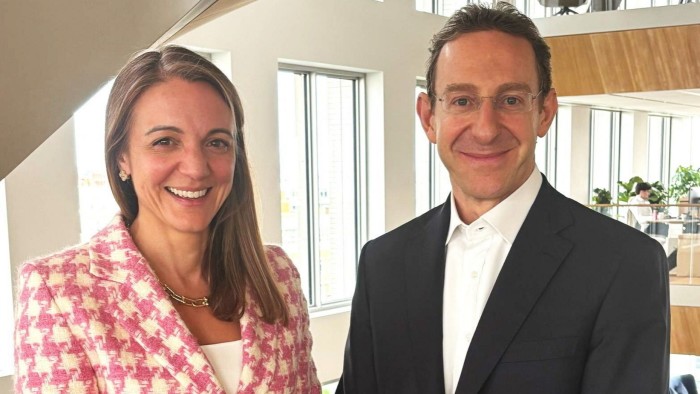Unlock the Editor’s Digest for free
Roula Khalaf, Editor of the FT, selects her favourite stories in this weekly newsletter.
Europe is experiencing a renaissance as an investment destination according to a top executive at private equity firm KKR, in light of sweeping US tariffs — a step-change in public spending plans and proposed competitiveness reforms on the continent.
“As a consequence of things like the Draghi report [on competitiveness] and tariffs, Europe’s undergoing a bit of a renaissance,” said Tara Davies, co-head of Europe at the US alternative investment group.
There was now “a real focus on self-reliance and reshaping of the economic model more generally”, she told the Financial Times. Germany’s recently announced €500bn infrastructure fund showed there was “a real push to spend where it’s meaningful for growth”, she added.
The comments come after a month in which US President Donald Trump announced substantial import taxes, before lowering them for 90 days for almost every country except China in the wake of market sell-offs. The lack of clarity has led some key global investors to halt commitments to private markets in the US.
“We’re very excited and very positive about the outlook for Europe, probably more so now than to some extent before,” added Mattia Caprioli, KKR’s other co-head of Europe, given the potential if former ECB president Mario Draghi’s recommendations for boosting the region’s competitiveness came to fruition.
“Rather than having five, six, seven different public markets in Europe that are small and fragmented and cannot provide enough liquidity to a business, you have one larger one with one, simple legal system,” he said, referring to Draghi’s recommendation for unifying Europe’s capital markets. “It would make it easier for certain companies to find capital.”
Caprioli said KKR would continue making significant investments in the US, despite continuing uncertainty, because “we don’t wake up one day and say, now Europe is more attractive than this other area” as it looked at the underlying drivers of particular businesses.
KKR has struck deals to buy companies worth about $10bn globally since Trump’s so-called “liberation day” tariff announcements, despite market volatility. The firm was “scarred institutionally”, as one banker put it, after not deploying quickly enough in the wake of the 2008 financial crisis.
Davies said that one of the lessons the firm had learnt in the wake of that crisis was the value of deploying capital consistently over time. “At times like this people tend to do nothing, but in hindsight these tend to be very interesting vintages,” she said. Funds are known by the year in which they first start spending cash.
KKR is currently the preferred bidder to take control of Thames Water, London’s troubled water supplier, with a £4bn equity cheque.
“It’s an infrastructure asset where it does need an operational turnaround,” Davies said. “That is our playbook in terms of everything that we do across private equity and infrastructure at KKR.”
The FT reported earlier this month that Chinese state-backed funds have been pulling back from investing in the funds of US-headquartered private capital firms following Trump’s tariff rhetoric.
But Caprioli said KKR had a diversified investor base, “which mitigates any potential issue”, and that KKR would also benefit from the growing influx of wealthy individuals into private equity funds.
So-called alternative investment firms have increasingly targeted retail investors as they seek to tap new sources of capital.




